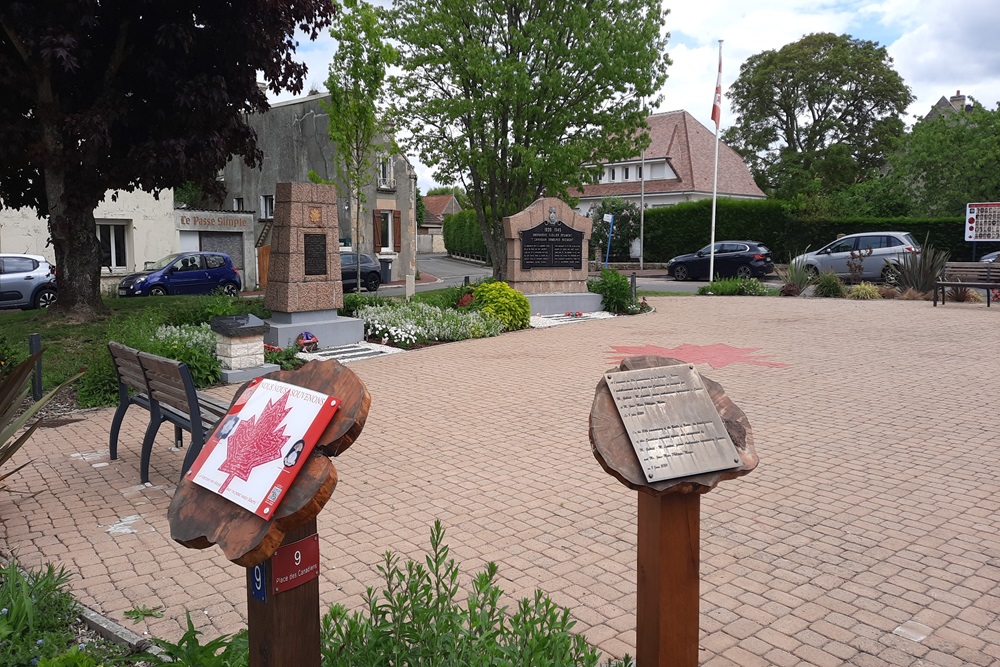Fontaine, George
- Date of birth:
- September 4th, 1918 (Dollard/Saskatchewan, Canada)
- Date of death:
- June 7th, 1944 (France)
- Buried on:
- Canadian War Cemetery Beny-sur-mer
Plot: II. Row: C. Grave: 3. - Service number:
- M/100249
- Nationality:
- Canadian
Biography
George Fontaine grew up in the rural community of Claydon. A native French-Canadian, he was fluent in both French and English, languages he spoke and read with ease. Raised on a farm, George left school at the age of 14 after completing Grade VIII to work full-time in agriculture. His early life was shaped by the rhythms of prairie farming, and he developed a strong foundation in mixed farming practices across Alberta and Saskatchewan. By the time he enlisted in the Canadian Army in March 1942, he had accumulated nine years of experience as a farm labourer, working for his father and others in the region.
At the time of his enlistment in Camrose, Alberta, George was employed by Clarence Woitte, a farmer who promised to rehire him after the war. George expressed confidence in his ability to operate a farm and had ambitions to return to agricultural life after his military service. He was also interested in mechanical work, particularly in motor mechanics, and had experience driving and maintaining cars, trucks, tractors, and other farm machinery. His hobbies included photography, radio, and mechanics, and he was known for his quiet, steady demeanor and good learning ability. He enjoyed reading adventure fiction and playing team sports like baseball, often taking the position of first base.
George enlisted as a Trooper in the Canadian Armoured Corps (C.A.C.) and trained at various locations including Red Deer, Borden, and Debert. He qualified as a tank driver and was assigned to the 27th Canadian Armoured Regiment (Sherbrooke Fusilier Regiment). His military records describe him as robust, clean-cut, and cooperative, with a strong aptitude for mechanical tasks. He was considered a good candidate for trade training as a driver mechanic and performed satisfactorily in that role.
George came from a large family, the seventh of ten children born to Israel and Adélia Fontaine. He had five brothers and four sisters, many of whom were living in Saskatchewan, Alberta, and Quebec.
Tragically, George Fontaine was murdered by Waffen SS soldiers the day after he landed on Juno Beach in France. His death was formally recorded by the Department of National Defence in 1944, and his father, Israel Fontaine, provided the necessary information for the settlement of his estate. At the time of his death, George was unmarried and had no children. He left behind a modest estate, including war savings and bonds.
Do you have more information about this person? Inform us!
- Period:
- Second World War (1939-1945)
- Period:
- Second World War (1939-1945)
- Period:
- Second World War (1939-1945)
- Period:
- Second World War (1939-1945)








